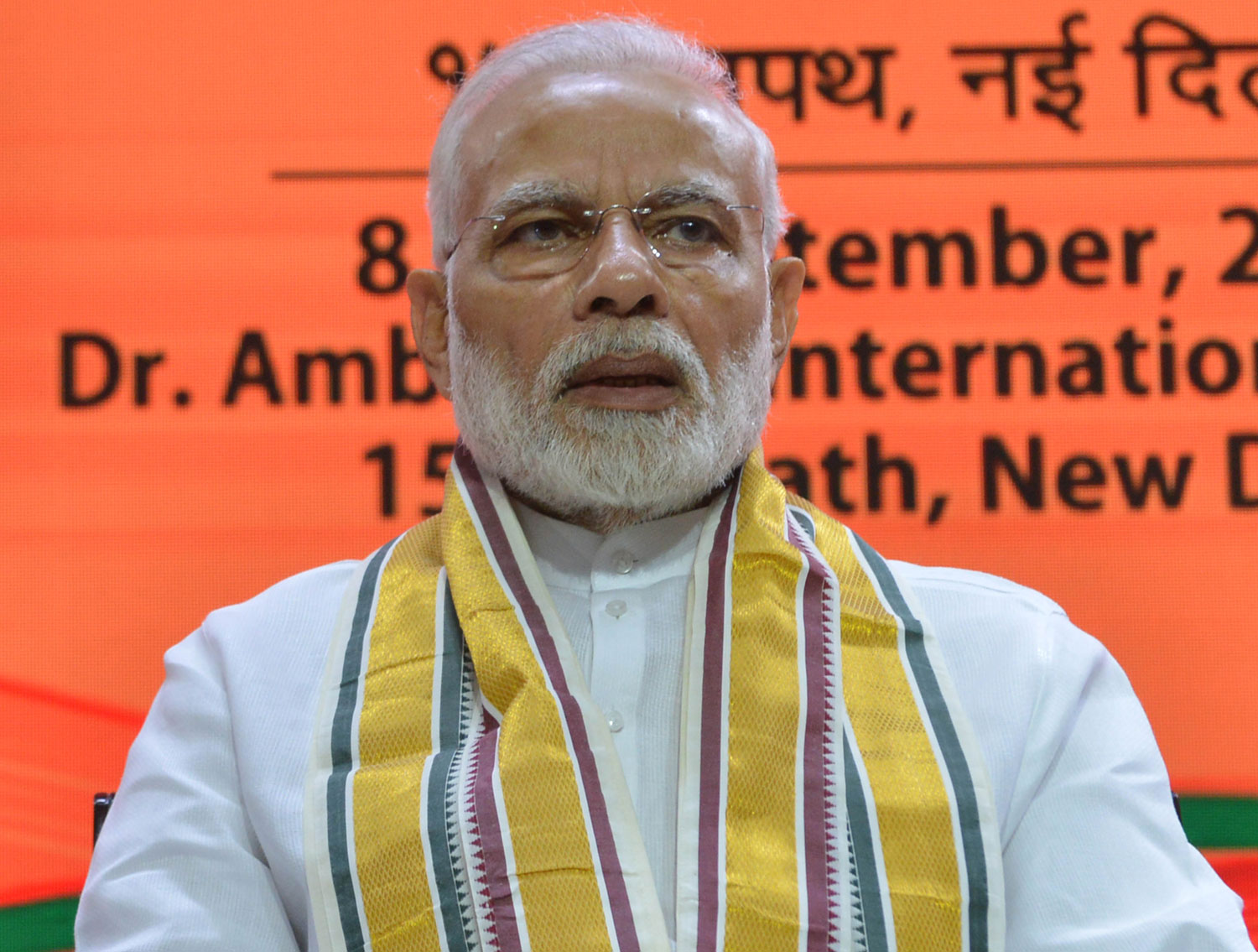Prime Minister Narendra Modi on Saturday emphasised the autonomy his government had granted to higher-education institutions but several academics questioned the claim.
Inaugurating a conference on education here, Modi termed the autonomy given to the IIMs “unprecedented”.
Among the freedoms granted to the B-schools by the IIM Act, passed last year, are those to appoint their directors and chairpersons.
“They can decide their course curricula, teachers’ appointments, board members’ appointments and expansion of the institution. The government will have no role,” Modi said.
He also lauded the University Grants Commission’s initiative of graded autonomy, notified this year, which grants institutions with higher scores in teaching, research and infrastructure greater freedom in expanding and launching new courses.
Some academics have alleged such autonomy would promote privatisation, encouraging institutions to start courses in the self-financing mode.
“Our Prime Minister doesn’t seem sympathetic to the autonomy of academic institutions. He seems to promote the idea of delivery first, then funds. The question is, delivery for whom and who is going to judge the quality of delivery?” Sociologist Andre Beteille said.
He said the government should not grade or rank its own institutions (the human resource development ministry has for the past three years been ranking higher-education institutions under the National Institutional Ranking Framework).
“Ranking shouldn’t be done by the funding authority but by independent bodies,” Beteille said. “Graded autonomy is an unhealthy trend. To give money based on grading is inducement to follow the path laid down by either the government or business which may be contrary to the agenda of the institution.”
Legal luminary and educationist N.R. Madhava Menon said “there’s no indication the government is inclined to give autonomy”. He cited how the HRD minister picks the vice-chancellor and the government nominates the selection panel for teaching posts. “All the appointments are controlled by the government.”
He urged the government to amend the acts that set up the universities “to allow efficient persons to be appointed”.JNU teacher Ghazala Jamil said the government had given more autonomy to administrators to run institutions but their condition hadn’t improved.
“In JNU, the vice-chancellor has opened engineering courses without any lab. Now he says he will take loans from the Higher Education Funding Agency,” she said.
“The whole concept of funding by the government has now changed to loans. This model will not support poor students.”
Inder Mohan Kapahy, an academic appointed UGC member in 2015, partially agreed with the critics but said the government was “committed to academic autonomy”.
He agreed that funding should not be linked to graded autonomy. “This is like enriching the rich and impoverishing the backward institutions. The government can promote excellence in other ways, not through funding,” he said.
He dismissed the fears that higher autonomy would lead to privatisation.











